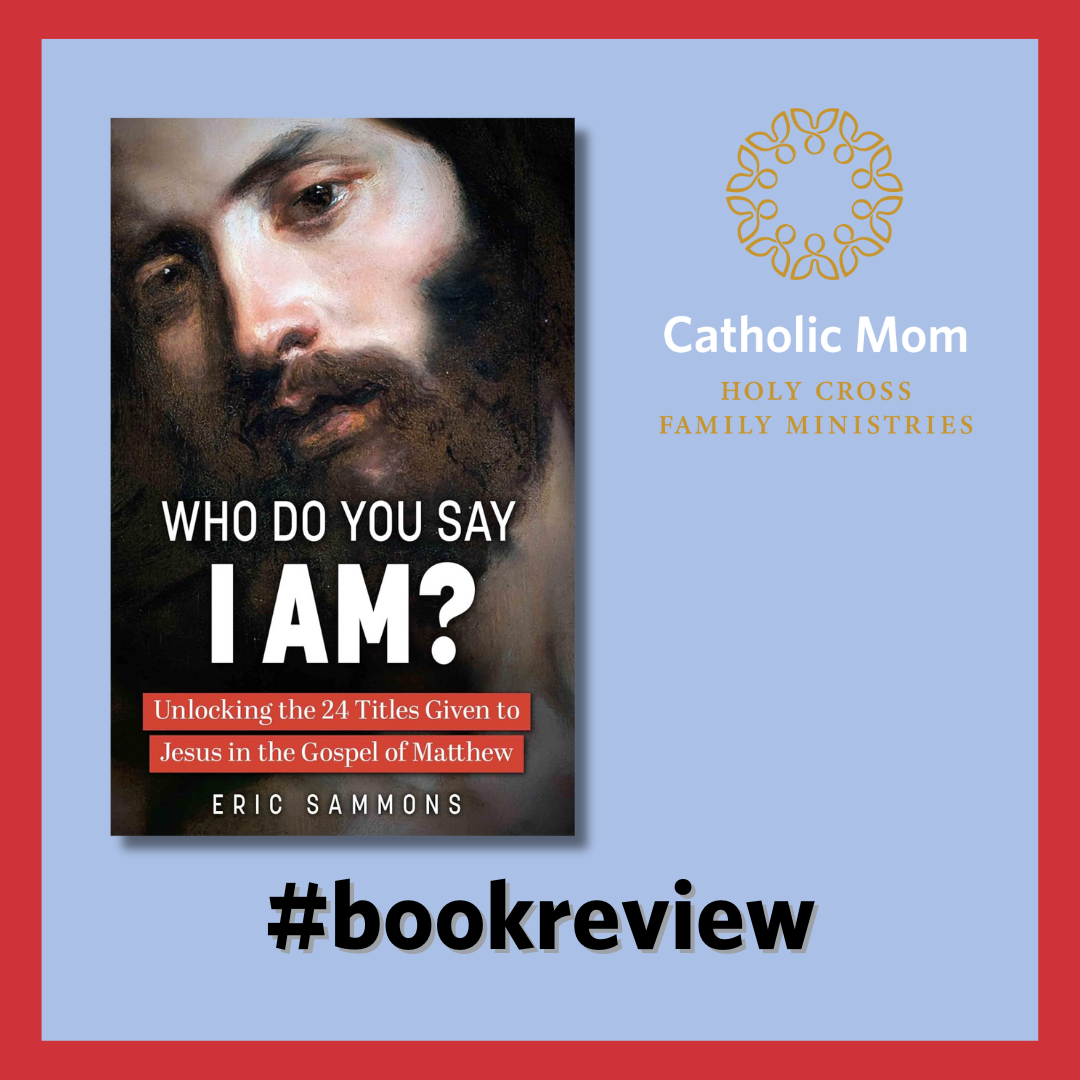
Lisa Henley Jones reviews Eric Sammons' book about the titles given to Jesus in the Gospels.
Reading through the Gospel of Matthew, I’d never noticed how many names or titles Matthew uses to refer to Jesus. Of the ones I did notice, such as Rabbi, Lord, Shepherd, Prophet, and Teacher, I didn’t think deeply about what the titles meant in the time of Jesus. I assumed the meaning was probably the same as we understand them now. Truthfully, I should have known better. Most words in Scripture have significant meaning to those who wrote them and to the audience they were written for at the time.
When I saw an advertisement for the book, Who Do You Say I Am? Unlocking the 24 Titles Given to Jesus in the Gospel of Matthew by Eric Sammons, published by Sophia Institute Press, I was surprised there were so many titles and interested to learn more about what they mean about Jesus.

I’d previously read another book by Eric Sammons, Holiness is for Everyone: The Practical Spirituality by St. Josemaria Escriva, and enjoyed his writing style. Sammons took the topic and presented it in a clear, easily digestible manner that gave me much to learn and reflect upon as I read. My positive experience with that book encouraged me to pick up this title by the author.
In his newer book, Who Do You Say I Am?, Sammons examines the 24 different titles given to Jesus by in the Gospel of Matthew with a clear understanding of scripture, both Old and New Testaments, and Catholic teaching.
Each chapter centers on one of the twenty-four titles given to Jesus, starting with the Scripture passage that includes the title discussed. Sammons then walks you through a detailed analysis of what was meant by the title as it was used in the time of Jesus. He continues with explaining the title as to how it was understood by scholars, theologians, saints, and in Church teachings since the Bible was written. The chapters conclude with a reference to the Scripture and reflection questions inviting us to think about how Jesus fills that role in our lives today.
One chapter is devoted to the title “Physician” as used in Matthew 9:12. From this Scripture verse, the author brings us to a discussion on conversion: turning away from sin and toward Jesus. He walks us through Scripture, early Church Fathers, St Augustine, St. Ignatius of Antioch, and even brings in the Catechism of the Catholic Church to help us go deeper on understanding Jesus as the physician. After reading the short chapter I am encouraged to reflect personally how I trust Jesus, the Divine Physician to heal me.
The 24 short, readable chapters are grouped by the type of titles into four parts. Even though the chapters are short, I preferred to only read one chapter per sitting so I could spend time journaling the reflection questions provided in the chapter and really ponder what I’d learned. It is not a book you want to read quickly because the author invites you to internalize the meaning of each title to grow deeper in your relationship with Jesus.
This book was a good read for my morning reflection time and to read during Adoration before the Blessed Sacrament. I would read one chapter at a time, pray with it, and journal through the reflection questions.
If you are interested in growing in knowledge of Scripture and Church teachings to deepen your understanding and personal connection to Jesus, you should read this book. Who Do You Say I Am? would also be a good book for reading and discussing in a study group.
This book was a meditation on the different “roles” of Jesus in my life. Reading Who Do You Say I Am? helped me to grow closer to Jesus and invite Him to change my life in new ways.
Ask for Who Do You Say I Am? at your local Catholic bookseller, or order online from Amazon.com or the publisher, Sophia Institute Press.

Copyright 2024 Lisa Henley Jones
Images: Canva
About the Author

Lisa Henley Jones
Lisa Henley Jones is a wife, mom, native Texan, and parish communications director. She enjoys reading, walking, going on date nights, and cheering on her kids in their activities. As a social media consultant, Lisa teaches Catholic parishes to engage, inspire, and evangelize on social media. Find her blog at Of Sound Mind & Spirit and her social media course at Parish Social Media.


.png?width=1806&height=731&name=CatholicMom_hcfm_logo1_pos_871c_2728c%20(002).png)
Comments